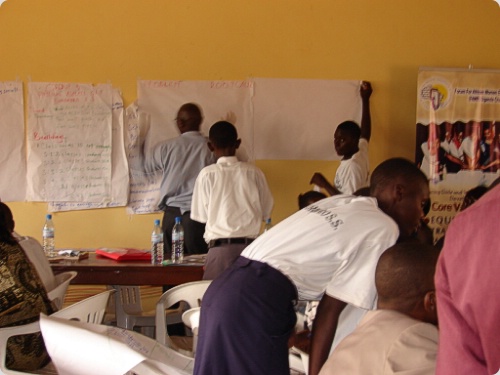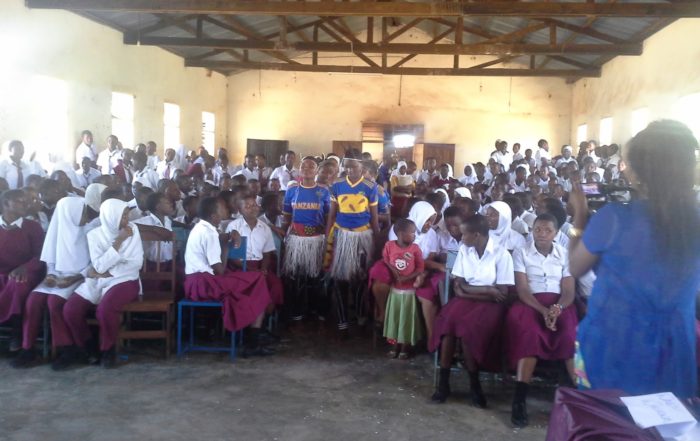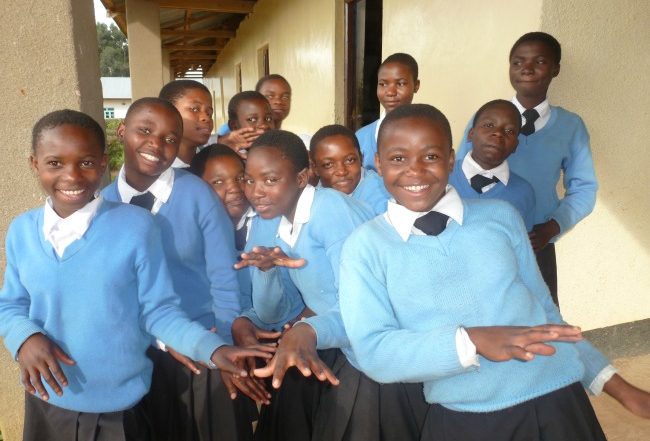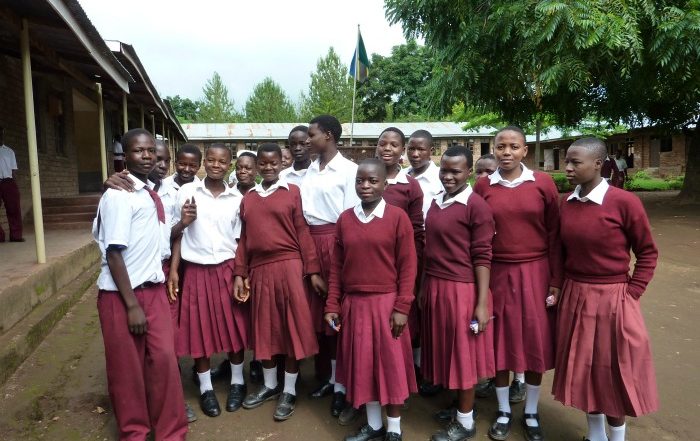Interventions
We believe it is important to demonstrate through practical interventions what works in enhancing girls’ education in sub-Saharan Africa. FAWE has developed several models that have been introduced in a number of countries to demonstrate solutions that improve girls’ access, retention and performance in school.
FAWE’s interventions include:
- Demonstrative models: Our Centres of Excellence, Tuseme Youth Empowerment, Gender-Responsive Pedagogy and Science, Mathematics and Technology models have been introduced in a number of countries to demonstrate what works in improving girls’ access, retention and performance in school.
- Bursaries: We provide bursaries to disadvantaged girls and boys to support access to and completion of a full cycle of primary, secondary or tertiary education.
- Targeted programmes and projects: We target specific contexts and issues affecting girls’ education through interventions such as Girls’ Clubs, HIV/AIDS programmes, Mothers’ Clubs, technical and vocational education and training, and education in conflict and post-conflict situations.
- Research: FAWE undertakes research on issues related to gender and education in sub-Saharan Africa to buttress its advocacy work and more effectively direct its programme activities.
Related News and Activities
Bukomero Senior Secondary School, Uganda
Established 2009 324 female students 393 male students 10 female teachers [...]
Mgugu Secondary School, Tanzania
Established 2001 26 female students 21 male students 3 female teachers [...]
J.J. Mungai Secondary School, Mufindi District, Tanzania
Mixed secondary school COE components Bursaries for underprivileged Gender-Responsive Pedagogy training [...]
Lufilyo Secondary School, Rungwe District, Tanzania
Mixed secondary school COE components Bursaries for underprivileged Gender-Responsive Pedagogy training [...]






